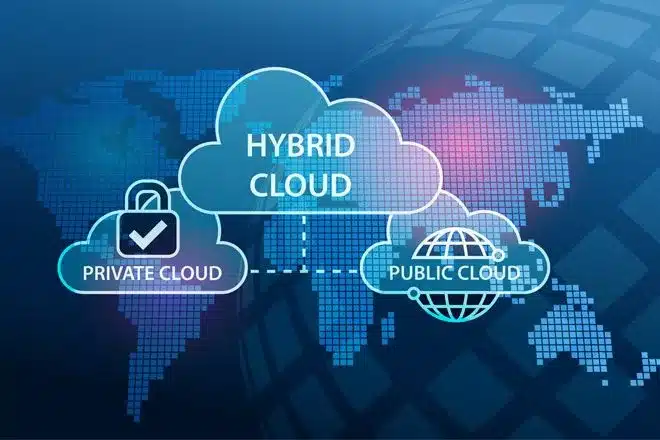In today’s rapidly evolving HR landscape, cloud-based technologies are transforming how HR departments manage critical processes such as recruitment, payroll, employee engagement, and more. As businesses move toward cloud solutions to streamline their HR operations, the decision between Private, Public, or Hybrid cloud models becomes crucial. Each model offers unique advantages and challenges, and selecting the right one can significantly impact both the efficiency and security of your HR systems.
Public Cloud: Scalable and Cost-Effective, Yet Shared Resources –
A public cloud is a service provided by third-party vendors like Amazon Web Services (AWS), Microsoft Azure, or Google Cloud. These services host applications and store data on shared infrastructure, which multiple organizations use. For HR departments looking to reduce costs while leveraging the scalability of cloud solutions, a public cloud is an attractive option. It is highly cost-effective because organizations only pay for the resources they use, eliminating the need for significant capital investment. Additionally, public clouds offer the benefit of rapid scalability, which is ideal for companies that need to scale HR operations quickly, such as during periods of growth or seasonal hiring.
However, one downside of the public cloud is the shared infrastructure. While cloud providers employ robust security measures, some organizations may find that storing sensitive HR data on shared platforms raises concerns about security and compliance. Public cloud solutions also tend to have less customization and flexibility compared to private alternatives, as they are designed to meet the needs of a wide range of businesses.
Private Cloud: Enhanced Security and Control, but Higher Costs –
On the other hand, a private cloud offers a more tailored and secure solution. With a private cloud, an organization hosts its own dedicated infrastructure, either on-premises or with a third-party vendor. This model provides complete control over data, security, and customization, making it ideal for businesses in highly regulated industries or those that need to meet strict compliance requirements (e.g., HIPAA, GDPR). For HR departments managing sensitive employee information such as personal details, payroll, and performance reviews, the private cloud offers a secure environment where businesses can implement rigorous security protocols tailored to their needs.
While a private cloud offers greater security and control, it also comes at a higher cost. Organizations must invest in the necessary infrastructure, either through hardware purchases or ongoing third-party hosting fees. Furthermore, private clouds may not scale as quickly as public clouds and often require more in-house expertise to maintain and manage the system.
Hybrid Cloud: Flexibility with the Best of Both Worlds –
A hybrid cloud combines elements of both public and private clouds, offering businesses the flexibility to choose where to place their data and applications. In a hybrid model, an organization can keep sensitive HR data on a private cloud while leveraging the scalability and cost efficiency of a public cloud for less-critical operations. For example, an HR department could store employee records and payroll information securely in a private cloud while using the public cloud to host recruitment tools or performance management systems.
The key benefit of a hybrid cloud solution is the flexibility it provides, enabling businesses to choose the most appropriate platform for different workloads. It also allows organizations to adapt quickly to changing demands, making it ideal for those with diverse HR needs. However, managing a hybrid cloud environment can be complex, requiring seamless integration between the two environments and careful management of resources. This complexity can also increase costs if additional resources are needed for integration and monitoring.
Choosing the Right Solution for Your HR Needs –
When deciding between public, private, or hybrid cloud solutions for your HR tech infrastructure, several factors should be taken into consideration. If your primary goal is cost-efficiency and scalability, and your HR systems don’t handle highly sensitive data, a public cloud might be the best choice. It provides the flexibility to scale HR operations quickly, without the need for large upfront investments. On the other hand, if your organization operates in a regulated industry or handles highly sensitive employee data, a private cloud would be a better fit due to its enhanced security and control over your data.
For companies that require the flexibility to scale their HR operations while maintaining security over critical data, a hybrid cloud model offers a balanced approach. With a hybrid cloud, organizations can store sensitive HR information on a private cloud while leveraging the public cloud for applications that are less critical but still need scalability and cost-efficiency.
Conclusion –
In conclusion, there is no one-size-fits-all solution when it comes to choosing the right cloud model for HR tech. Each cloud option—public, private, or hybrid—comes with its own set of benefits and challenges. Public clouds are cost-effective and highly scalable, making them ideal for organizations with fluctuating HR needs. Private clouds offer enhanced security and compliance but at a higher cost and with limited scalability. Hybrid clouds provide the best of both worlds, offering flexibility and control, but come with increased complexity.
Ultimately, the choice will depend on your organization’s size, security needs, compliance requirements, and budget. By carefully evaluating these factors, you can select the cloud model that will support your HR technology strategy, drive operational efficiency, and ensure the security of your workforce’s data. The right decision will help optimize your HR operations and contribute to the overall success of your organization’s growth and innovation.

